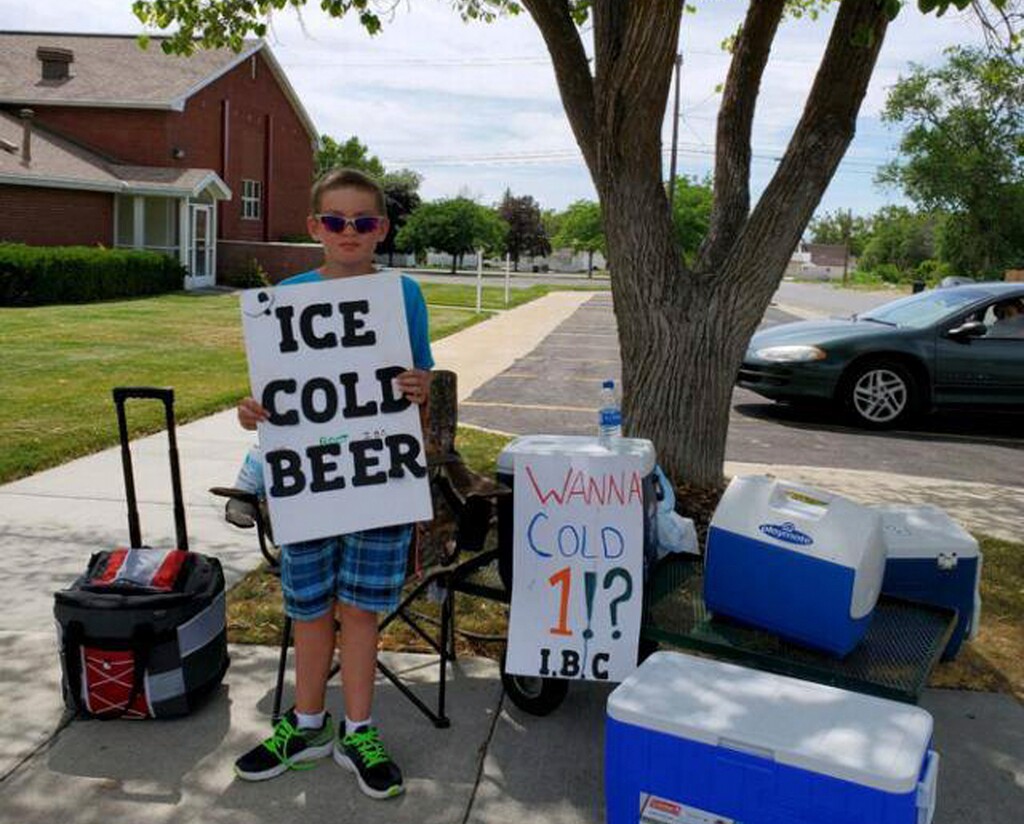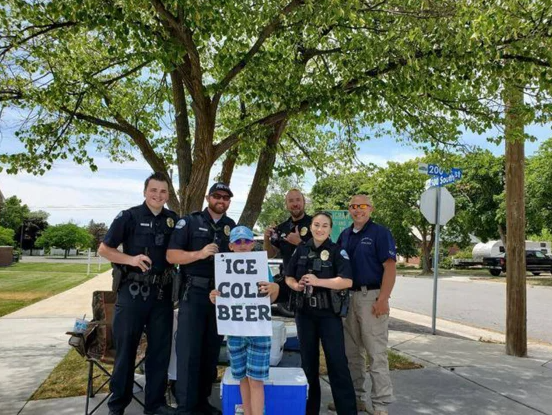Using Small Print to Sell a Tasty Treat
You get an offer in the mail that seems like a dream come true — that thing you’ve always wanted at such a steep discount, it’s practically free. But then you notice the tiny words at the bottom of the page, and an adage pops into your head: “Read the fine print.” That sentence is typically used as a warning — what you’re agreeing to seems too good to be true because there’s good chance it is.
But the small print doesn’t always have to be a bad thing. Sometimes — even when it’s designed to trick you — it can be the difference between getting the police involved and something truly joyous. Just ask Seth Parker, who in 2019 was the 11-year-old owner/operator of a unique lemonade stand in Brigham City, Utah.
Parker moved to Utah from Georgia with his family the year prior and hadn’t made a lot of friends, so his parents encouraged him to get o outside more and do something. He came up with the idea of a lemonade stand — a common enough summer activity — and got to work. But when grocery shopping with his parents, he had a better idea: why sell lemonade when you can sell something better? Here’s a picture of his roadside business.

That’s Seth, left, with a small army of coolers and a collapsable chair. And as the sign suggests, that’s not lemonade in those coolers. Seth, it seems, was selling beer — something an 11-year-old shouldn’t be drinking, for sure, and probably shouldn’t be selling, either. His roadside stand was downright scandalous, and some of the neighbors agreed. As the Salt Lake Tribune reported that July, “Several residents in the northern Utah city called police earlier this week concerned about a young boy selling alcohol in front of a church.” The city dispatched Levi Tarver, the city’s animal control officer, to investigate. (As KSLTV reported, Tarver was sent because the “[other] police officers were busy with calls at the time.”)
They did not take Seth’s mug shot, pardon the obvious pun. Upon investigation — and it wasn’t much of an investigation — it turned out that Seth had no alcohol on him. He was selling root beer. Seth came up with the joke, and his parents approved. But apparently, some of the passersby didn’t realize it was a joke. And Seth and his parents didn’t realize that was an issue until Tarver showed up. Tarver told KSLTV that “[Seth] and his parents were a little bit confused when I first showed up, but we all kind of laughed about it afterward.”
But Tarver did suggest that Seth make a small change to his sign. He requested that the young entrepreneur add the word “root” to the poster, just to be safe, and also in hopes of getting people to stop calling the precinct. Seth agreed, and the police department decided to gather some officers (who I guess were no longer busy) to pose for a picture with the kid and his (root) beer stand.
The police shared their photo on the department’s Facebook page and the stunt went viral. People came from all over to take a picture of Seth with his sign and, yes, buy some root beer. Seth’s mother, Alexis, told the Salt Lake Tribune that roughly 60 people came to the stand for the first few days after the news of the creative marketing spread.
He made so much money, he needed to buy another cooler to meet demand.
Bonus fact: In 1888, an Ohio man named Marvin Stone patented the first modern drinking straw. Previous straws were just pieces of ryegrass that were dried out, but per the Washington Post, they often conferred a “grassy taste” to whatever people were drinking. Stone didn’t like that, so he came up with a new kind made out of paper. You can thank lemonade for the size of the straw — not the length, but the diameter of the opening. Stone, per the Post, “was tired of getting seeds in his mouth when all he wanted was a refreshing sip of lemonade,” so he made his straws just narrow enough where the liquid come come through but the seeds couldn’t.
From the Archives: A Frank-ly Kind Act: Another young entrepreneur sets up a roadside stand and gets a visit from the cops — and things go right.

